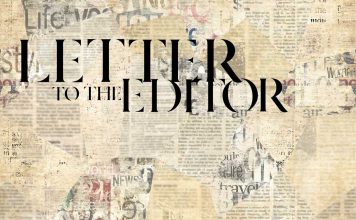Dear Editor,
A lot has been written about accidents, blame, remorse and
consequences in recent letters.
Dear Editor,
A lot has been written about accidents, blame, remorse and consequences in recent letters. Most of us learned definitions of these concepts as children, and many of us retain a childish understanding of them as adults. Perhaps the reason many hate lawyers is because lawyers sink the hooks of reality deep in our mouths and then jerk us into adult realities.
There is no such thing as an accident. There is ignorance, negligence, willful disregard, fault and consequences, mixed in with what is right, what is wrong, what is legal and what is illegal. There is good and evil. But if you list these words and draw connecting lines between them, few pair up as we think they should.
For example, smoking marijuana is illegal, many think of it as evil, until a wife or grandfather gets relief from the agony of cancer only with marijuana. Then, it becomes good. Some individuals can sell a car knowingly with bad brakes, write the bill of sale to say “as-is” and then feel no responsibility for the fatal accident after the buyer unknowingly gives the car to his 16-year-old daughter. Few of us have anything but wandering definitions tailored to fit our own need for a clear conscience. As with religion, everyone wants to talk but nobody wants to listen when it comes to forgiveness and consequences.
Fortunately, there is such a thing as forgiveness. However most misunderstand the relationship between forgiveness and consequence. We can be forgiven, but as adults we must still pay the consequence. Dropping a dish as a child and being forgiven is not the same as taking the life of a child and being forgiven. As an adult, there is always a consequence, regardless of how remorseful we are. Some can lie about events to exact punishment for others and justify it, such as clearly lying about seeing someone talk on a cell phone to exact a more severe consequence than would otherwise be warranted. These liars expect no consequences, failing to see that they, themselves are perhaps closer to evil than those they try to punish with their lies. The word shame relates to public exposure, not the deed. We are shamed when others know what we did and liars often find themselves in a world of shame. Such people always stumble in their lives and pay serious consequences.
All of us have encountered at church the individual who admits to having done seriously wrongful deeds, but then takes comfort in being forgiven, i.e., “born again.” Some take it to the extreme, by continuing to wrong others and then seeking forgiveness through their faith. This brings on much of the cynicism about religion but remember – cynicism is the product of a broken heart. It hurts us deeply when we see this happening, but should never let the observation be the cause that deters us from having faith.
The world would be a better place if we realized that forgiven or not, in the end, we still pay up for our actions and perhaps it is not always for us as mortals to extract a consequence now. Some people have no shame simply because they hide their deeds, but the day of reckoning will come. How may of us have said, “I always get caught, but he always gets away with it …” – not really.
Where does this lead us? We should be careful about who we blame, about chasing severe punishments for others and demanding specific consequences right now. Anyone can have a lapse of judgment resulting in a negligent act including those with the kindest souls. Let he who is without sin cast the first stone. Lying, screaming and demanding justice often comes from the darkest parts of the human heart.
Tony Weiler, Gilroy











